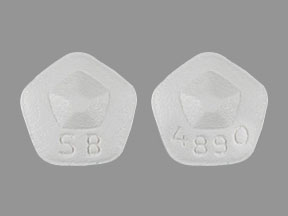Requip and Alcohol/Food Interactions
There is 1 alcohol/food/lifestyle interaction with Requip (ropinirole).
Ropinirole Food/Lifestyle
Moderate Food Interaction
GENERALLY AVOID: Alcohol may potentiate some of the pharmacologic effects of CNS-active agents. Use in combination may result in additive central nervous system depression and/or impairment of judgment, thinking, and psychomotor skills.
MANAGEMENT: Patients receiving CNS-active agents should be warned of this interaction and advised to avoid or limit consumption of alcohol. Ambulatory patients should be counseled to avoid hazardous activities requiring complete mental alertness and motor coordination until they know how these agents affect them, and to notify their physician if they experience excessive or prolonged CNS effects that interfere with their normal activities.
References (4)
- Warrington SJ, Ankier SI, Turner P (1986) "Evaluation of possible interactions between ethanol and trazodone or amitriptyline." Neuropsychobiology, 15, p. 31-7
- Gilman AG, eds., Nies AS, Rall TW, Taylor P (1990) "Goodman and Gilman's the Pharmacological Basis of Therapeutics." New York, NY: Pergamon Press Inc.
- (2012) "Product Information. Fycompa (perampanel)." Eisai Inc
- (2015) "Product Information. Rexulti (brexpiprazole)." Otsuka American Pharmaceuticals Inc
Switch to consumer interaction data
Requip drug interactions
There are 308 drug interactions with Requip (ropinirole).
Requip disease interactions
There are 6 disease interactions with Requip (ropinirole) which include:
- neuroleptic malignant syndrome
- hypotension
- psychosis
- cardiovascular disease
- hepatic dysfunction
- renal dysfunction
More about Requip (ropinirole)
- Requip consumer information
- Check interactions
- Compare alternatives
- Reviews (122)
- Drug images
- Side effects
- Dosage information
- During pregnancy
- Drug class: dopaminergic antiparkinsonism agents
- Breastfeeding
Related treatment guides
Drug Interaction Classification
| Highly clinically significant. Avoid combinations; the risk of the interaction outweighs the benefit. | |
| Moderately clinically significant. Usually avoid combinations; use it only under special circumstances. | |
| Minimally clinically significant. Minimize risk; assess risk and consider an alternative drug, take steps to circumvent the interaction risk and/or institute a monitoring plan. | |
| No interaction information available. |
See also:
Further information
Always consult your healthcare provider to ensure the information displayed on this page applies to your personal circumstances.


